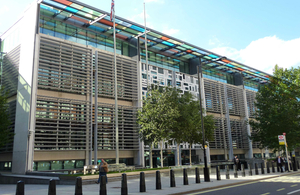Significant measures to tackle worsening backlog in local audit
Reforms announced to clear the significant backlog in the auditing of local bodies’ accounts in England

Significant measures to tackle a worsening backlog in local audit and restore transparency and accountability over how public money is spent across England have been announced.
In a statement to the House of Commons, Minister of State Jim McMahon announced measures to tackle the significant inherited backlog in the auditing of councils and other local bodies’ accounts. Minister McMahon emphasised the government’s determined to take the tough choices to begin rebuilding the foundations of local government.
It comes after only 1% of local bodies published audited accounts on time last year, with the backlog likely to increase to around 1,000 by the end of September. Without action, the backlog will continue to grow and continue to undermine local accountability and governance.
Secondary legislation will be laid when parliamentary time allows to set a statutory backstop of 13 December 2024 for the publication of audited accounts for all financial years up-to-and-including 2022/23. This will clear the backlog and enable a focus on recent accounts to provide the most up-to-date information.
Minister of State Jim McMahon said:
We know how important local services are to our communities and how vital it is councils, and other local bodies, have the financial transparency needed to continue to deliver them.
We inherited a broken local audit system. These proposals will tackle the immediate challenge of the backlog, but work is also underway to deliver our manifesto commitment to overhaul the system to ensure it is fit, legal and decent and works for everyone.
Due to the time constraints, not all audits will be completed in full by the December backstop. Where this is case, auditors will issue ‘disclaimed’ or ‘modified’ audit opinions. Auditors are likely to issue hundreds of ‘disclaimed’ audit opinions and disclaimed opinions will likely continue for some bodies for a number of years. Local bodies should not be unfairly judged based on disclaimed or modified opinions, caused by the breakdown in the system and the introduction of backstop dates that are largely beyond their control.
The proposals would also set backstops for the subsequent years up to 2028 to allow full assurance to be rebuilt over several audit cycles. The aspiration of the government and key local audit system partners is that the system recovers as early as possible within this period.
And while there will be modified and disclaimed opinions, auditors’ other statutory duties – including to report on Value for Money (VfM) arrangements, to make statutory recommendations and issue Public Interest Reports – remain a high priority.
There will be very limited and specific exemptions from the backstop dates and, where these apply, an explanation must be provided publicly, and audited accounts must still be published as soon as practicable.
If any bodies fail to comply with a backstop date they would be required to publish an explanation, send a copy to the Secretary of State, and publish audited accounts as soon as practicable. The government also intends to publish a list of bodies and auditors that do not meet the proposed backstop dates.
The measures will be supported by guidance to auditors issued by the Comptroller and Auditor General (C&AG) and endorsed by the Financial Reporting Council.
Communication and engagement with stakeholders will take place in the coming months to make clear the necessity of the steps and emphasise the context for disclaimed opinions. Finally, at the point the C&AG requests, a new Code of Audit Practice will be laid in Parliament.
All key local audit organisations support these exceptional and bold measures, and understand that decisive action is needed to reset the system and repair the foundations of local government.
Local authorities and other local bodies, alongside their auditors, are our partners in this plan to restore a system of high-quality and timely financial reporting and audit. The government commends the commitment of local finance teams and auditors in their work to date.
The government intends to set out its longer-term plans to fix local audit this autumn.
Notes to editors:
The proposed backstop dates are:
- Financial years up-to-and-including 2022/23: 13 December 2024
- Financial year 2023/24: 28 February 2025
- Financial year 2024/25: 27 February 2026
- Financial year 2025/26: 31 January 2027
- Financial year 2026/27: 30 November 2027
- Financial year 2027/28: 30 November 2028